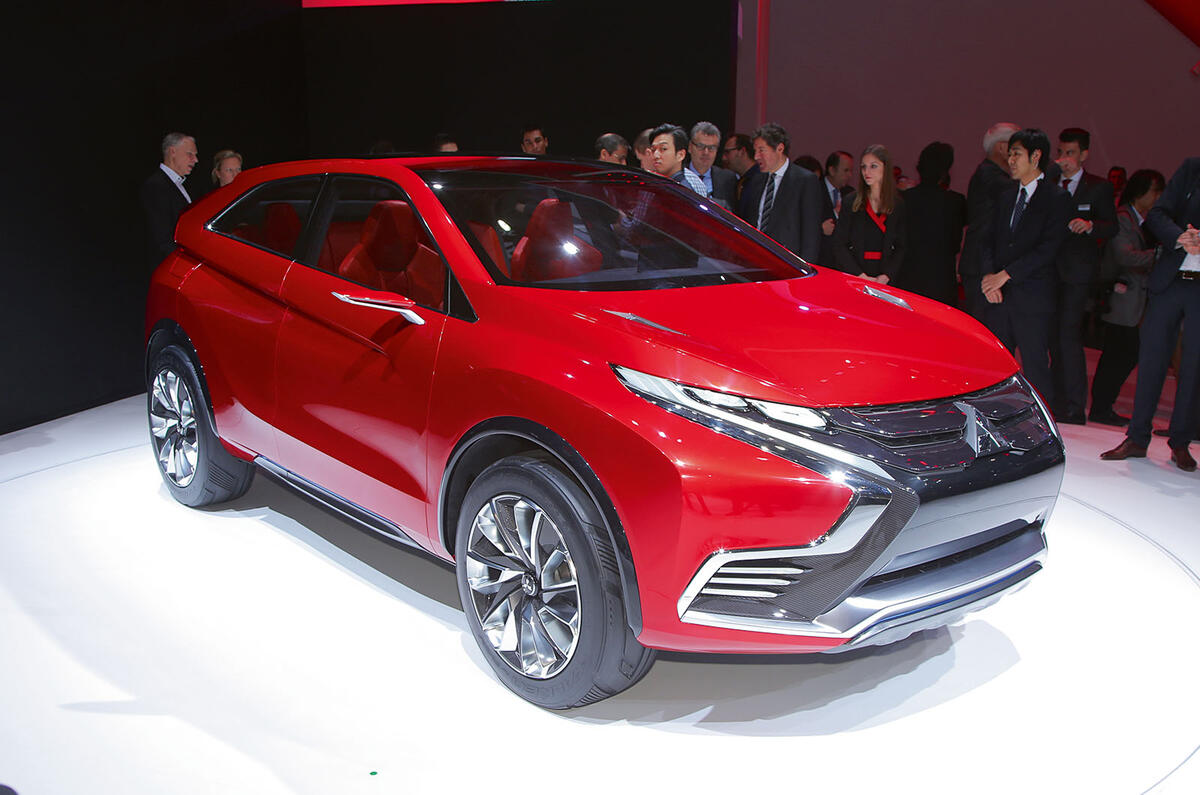Mitsubishi is working at top speed on an all-new range of plug-in hybrid and electric SUVs, aiming to establish itself as the world leader in a niche for environmentally friendly soft-roaders and lift its image and prices towards the premium bracket.
The plan, outlined exclusively to Autocar by Mitsubishi chairman and CEO Osamu Masuko during a visit to London, follows the impressive sales performance of the Outlander PHEV, launched last year. UK sales to the end of June 2015 totalled 7255 units, more than double those of the Nissan Leaf. Last year it topped sales of electric cars and PHEVs in the UK and Europe.
Masuko said that between now and 2020, Mitsubishi will build a five-tier line-up of SUVs, four of which are likely to be plug-in hybrids or EVs.
The line-up will start just above the B-segment with a downsized Mitsubishi ASX and reach as far as the Shogun.
Masuko said the next ASX is likely to be the world’s smallest SUV with pure battery-electric power, although the company has still to reach an final decision on that. It might still be a PHEV. However, hints of an all-electric ASX could come with the unveiling of the eX concept at this month's Tokyo motor show. The eX features an electric all-wheel drive powertrain.
There will also be an all-new SUV between the ASX and Outlander (the latter will grow a little to make space for the new model), and between the Outlander and regular Shogun the company will add a ‘Shogun Sport’, described as “a conventionally powered pure off-roader”.
Both the proposed all-new model and the Outlander will be PHEVs. The Shogun flagship is also likely to be a plug-in, although again the final decision has yet to be taken.
Masuko said that although Mitsubishi never expected the Outlander PHEV’s success to be as dramatic as it has been, he was pleased if it encouraged other manufacturers to move more quickly into the sector.
“It is true that at first we didn’t have to fight other competitors and that in future we will face fierce competition,” he said. “However, the signs that PHEV technology is spreading are positive. That means it will become a major technology for the future.
“We must look very carefully at where society is going, and at the progress of battery technology, before taking these decisions,” he added. “If we were to make the wrong decision, a small company like ours would not be able to compete. But we must reach our decisions quite soon.









Join the debate
Add your comment
PHEV success has nothing to do with brand